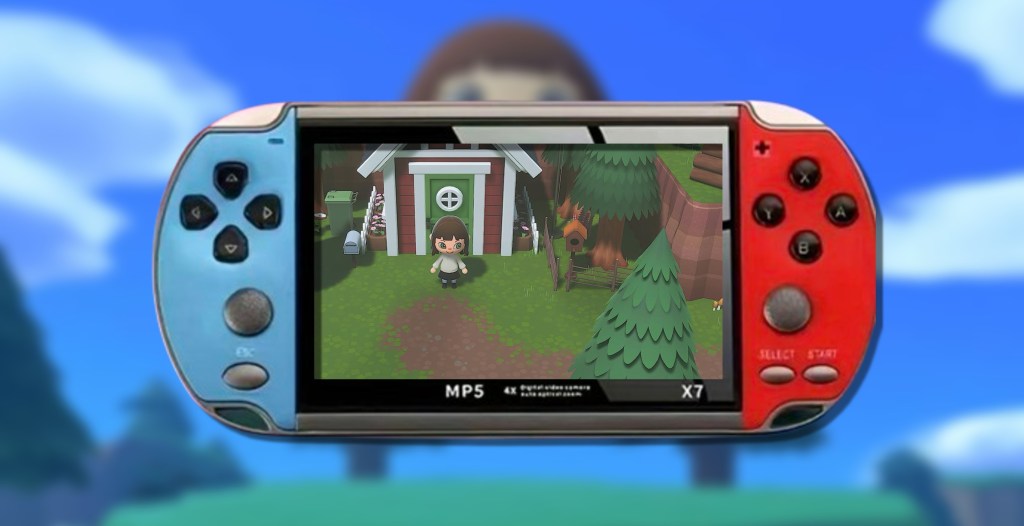Presented by
Seth Margolis and his wife Abigail Collins had basically given up on owning a home in Toronto. Prices were skyrocketing, people were getting into bidding wars over homes with crumbling ceilings, and even the couple’s last-ditch attempt to buy a place with a few friends had fallen through.
Videos by VICE
Then 1998 rolled around, the market cooled, and Seth and his partner were able to snap up a fixer-upper in the city’s west end. Yes kids, time really is a flat circle.
Seth’s weathered a few housing market bubbles in his day, and as a self-described “frugal socialist” who managed to buy a property six months after he was laid off, we thought he’d have some good words of wisdom for today’s generation.
Note: Seth was a little nervous after the internet exploded on those oblivious Parkdale gentrifiers, so he asked me to change his family’s names for the story. All other details are as Seth shared them.
What was the market like when you started thinking about buying a house?
There was a real bubble going on in the 80s in Toronto. We had friends often tell us, “If you don’t get into a house now, you’ll never get into one.” Prices were going up and up every week. But we weren’t in a position to buy, and so we didn’t. By the time we bought our home in 1998, I was already in my 40s. Friends of ours certainly got started a little earlier, but it wasn’t as big a priority for us.
Why was that?
You know, I have a masters in social work and was employed in social housing policy, but I had no real concept of what home ownership was. I knew all about rental housing, sure, and being a tenant in the context of social welfare. But I didn’t understand what a house was about, and we weren’t in a rush to find out.
We were pretty settled, living in a non-profit housing co-op. We were lucky to be able to live there, but it was only 700 square feet. Our son Daniel was born, and then we were expecting baby number two. So we moved, and started renting the first floor of a house off Roncesvalles [in Toronto’s west end] that had a big backyard. We realized then that we wanted to find that in a place of our own.
So how’d you do it?
It happened during one of the most difficult periods of my life. I’d lost my job in ‘96, as I’d been downsized. The only reason financially that we could afford to do it was that my mother passed away in 1998, and we received an inheritance of around $100,000. That’s when we started seriously considering using that money for a down payment.
But I didn’t realize we still had to qualify for a loan. I had to make enough money, and my wife had to make enough money, so that a lender would consider us worthy enough. We actually didn’t qualify on our own, and had to get a guarantor. We had a family member do it. We were paying the mortgage, but if something happened and we couldn’t, then they were on the hook.
How did you go about looking for a house?
First, we figured out what we could spend. We were paying $800 a month in rent, so if we had a mortgage with that as an approximate monthly payment, we’d be alright. I’d started a new career as a financial advisor in 1998. Now I was thrown into a field where I had to quickly learn about mortgages, financing, and banking. Budgeting for a house was good for the learning curve.
Did you get into any bidding wars?
No, houses would come up, but others would put in a higher offer and we just couldn’t match it. We put offers in on three or four properties like this. Then we found our dream house, right across the street from some friends of ours. The owners wanted $280,000, and we knew we couldn’t go beyond $260,000. We tried to haggle, but we lost out. We just felt crushed. We thought we’d never buy a house. But apparently that’s part of the process. If you talk to real estate agents, they’ll tell you these stories. It’s the cycle. And you just have to keep going through it.
So how’d you eventually find the one?
Our real estate contacted us in August of ‘98. She’d found a home that was only being shown to other agents, it wasn’t yet publicly available. It wasn’t everything we wanted, but it was close, and the owners were eager to sell. Our agent sensed that, and advised us to offer the asking price and to let them know that we were going all in, this the most we could do, and there’d be no dicking around. That’s the way we went in, and the owners said fine. We got it for $260,000.
Were there any extra costs once you’d closed on the purchase?
Oh yeah, the house needed a fair bit of work. We ended up spending about $30,000 before we even moved in. For our mortgage, we took out more money than we actually needed. That paid for rewiring most of the house, fixing walls where the plaster had crumbled. The ceilings had caved in on some of the closets. The whole place needed to be painted and cleaned. We were lucky, because we closed on the house a month before we wanted to move, and could stay in the rental apartment while we were renovating. That was the most stressful month of my life. We were trying to get all that stuff done while I was starting a new job, and with a young family.
Did you feel tight while all this was happening?
It was very stressful, but I felt like we could manage. The way we set up the mortgage loan, we could make the payments. But we had to be very careful with money. We had a cushion of a few thousand dollars for a rainy day fund. Plus, we had the ability to borrow more against the house if we really wanted. I had a good job before I was downsized, but we’ve never been upwardly mobile in that economic sense. We chose the other path. So we didn’t have a lot of extra expenses.
Any advice for the kids today who want to eventually buy a home?
You know, people were really panicking in the 80’s, trying to get a hold of property while the prices were going up. But then the market crashed in 1990, and there was a big reset on the price of real estate. People who’d bought houses for $300,000, next month they were only worth $200,000. There’s all kinds of financial risk when you buy a house, and it’s important to remember that. Capitalism doesn’t happen without financial risk.
Conclusion
Busts always follow booms, and it’s important to remember that when peer pressure might get you tempted to take on more home debt than you can afford. Focus on saving up for the biggest down payment you can to minimize your mortgage costs, and be sure to factor in the other costs of homeownership like insurance, taxes, repairs, and utilities.
More
From VICE
-

Not one of the AI Brad Pitts. (Photo by Marc Piasecki/WireImage; LiuNian via Getty Images) -

(Photo by Emma Farrer / Getty Images) -

Screenshot: Shaun CIchacki -

Samsung Trade-In Program. Phones Disassembled – Credit Samsung
